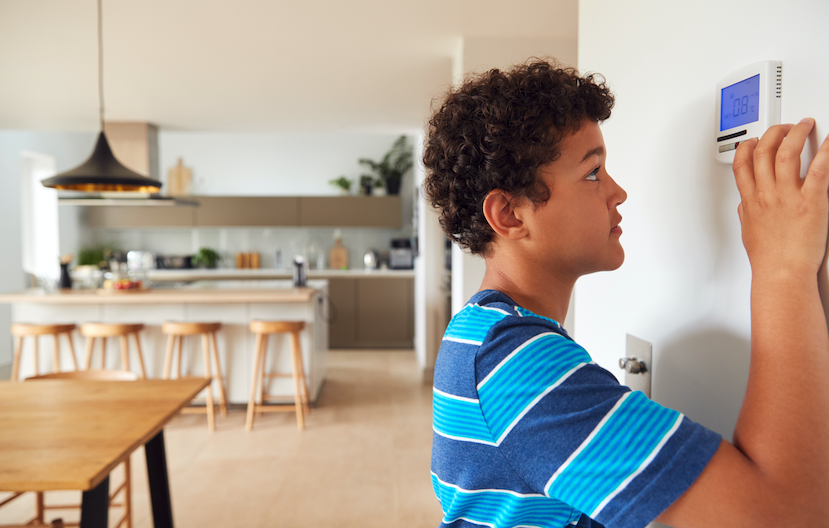The higher temps and humidity spikes for summer have returned again. Each year, Minnesotans find themselves thankful to be rid of winter, then slowly dreading venturing outside in the high summer heat.
If you haven’t already, it’s important to make a plan for yourself and your family to combat the summer sun without driving up your energy usage! Follow these helpful tips:
Invest in a Quality Fan
Ceiling fans do much to circulate the air and cool you down – as long as they are working properly. If you don’t have a ceiling fan in your home or need a replacement, it’s an investment that more than pays for itself with lower cooling costs. Keep in mind that a ceiling fan doesn’t actually make the air in a room colder. A fan’s job is to cool people through the wind chill effect. This means if you are not home or in a certain room, you should turn off your ceiling fan.
Program Your Thermostat
Just like a fan doesn’t work if no one is in the room, your air conditioning doesn’t need to be at its lowest setting when cooling an empty home. Set your thermostat a few degrees warmer when no one is home will save you tons. In fact, you can save up to 10% a year in heating and cooling costs by simply bumping your thermostat back a few degrees.
Upgrade Your Appliances
You might notice when your air conditioner is working overtime to keep your home cool, but other appliances like your refrigerator or freezer work overtime in high heat as well. It might be time to invest in an upgrade. Air conditioner experts recommend looking for, “Energy Star certified systems that have a high Seasonal Energy Efficiency Ratio (SEER) and Energy Efficiency Ratio (EER) ratings.”
Speaking of your refrigerator, when was the last time you checked the settings? Many people have their refrigerators turned to a setting that is colder than necessary. A temperature of 35 to 38 degrees is ideal for the fridge and 0 to 5 degrees for the freezer.
Wash Your Clothes with Cold Water
These days, it’s pretty much a myth that cold water doesn’t get your clothes as clean. Older washing machines needed the aid of hot water to clean clothes efficiently, but with newer models, this isn’t necessary. You can save energy costs by using cold water on your next load.
Check Your Seals
Sealing your doors and windows isn’t just important in the winter. After all, sealing your home keeps unwanted air outside, but instead of keeping out the cold in the winter, you’re keeping it in! Not only will this make your HVAC system more efficient, but it will also improve the indoor air quality of your home.
Unplug
Perhaps the easiest to execute but the hardest to stick with, stop your electronics from sucking up all your energy. It’s simple to unplug your chargers, TV, computer, and other small electronics when you’re not using them, but take it a step further and take up a summer hobby that is free of screens! That way, you’ll get in the habit of using less electricity on a regular basis.
Not sure what kind of energy use your home goes through? Find out more about energy audits from RetroGreen Energy! We are your exclusive source for BPI-certified energy testing in the St. Cloud area.
